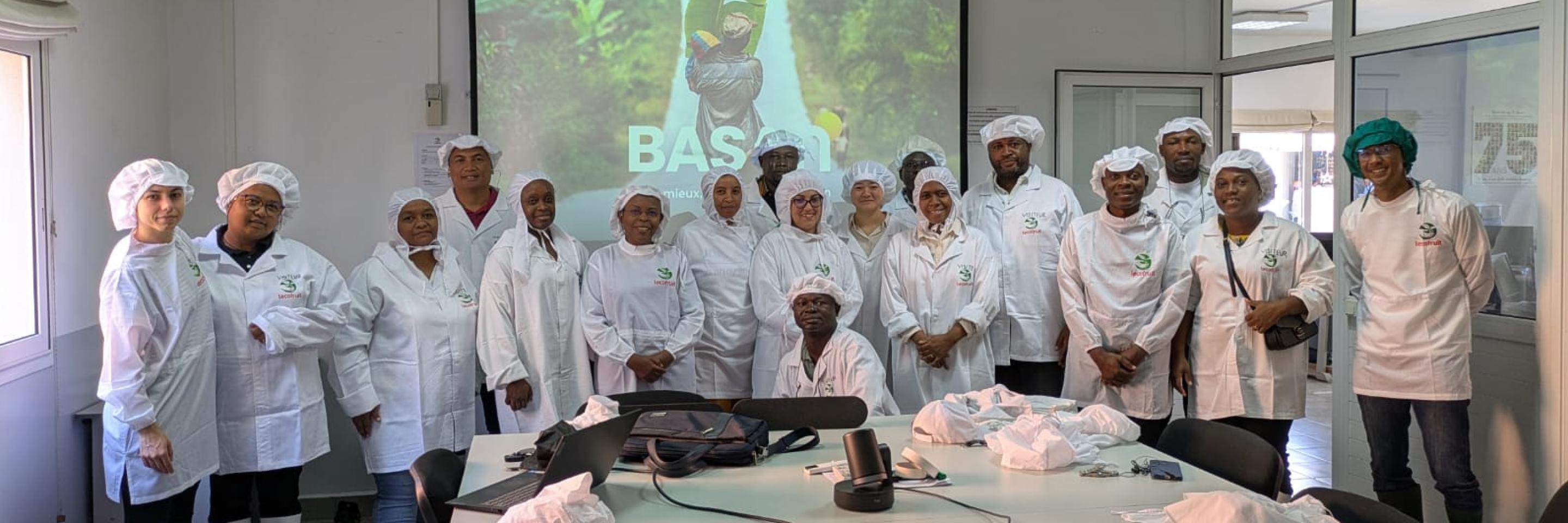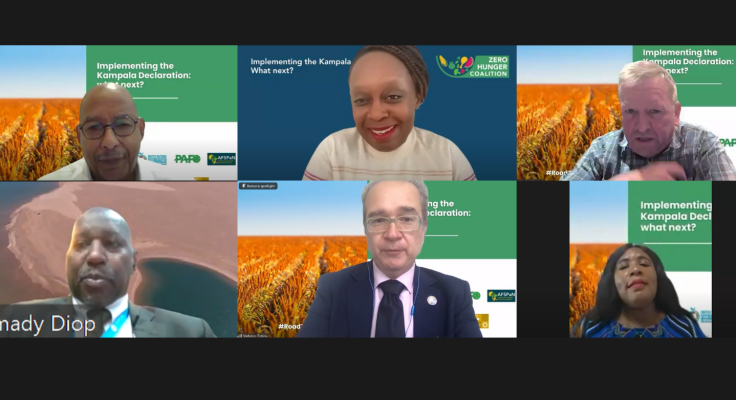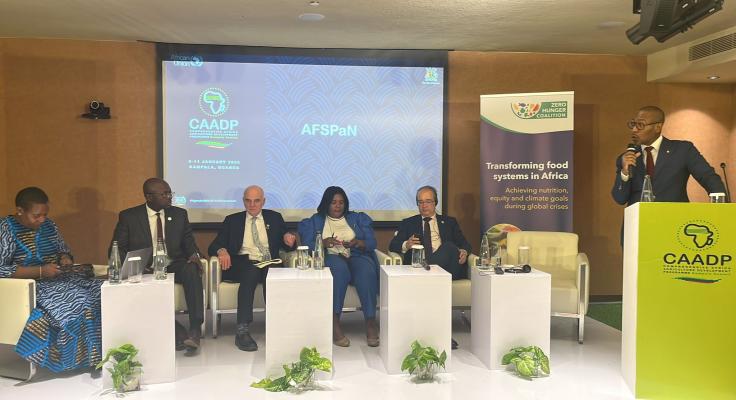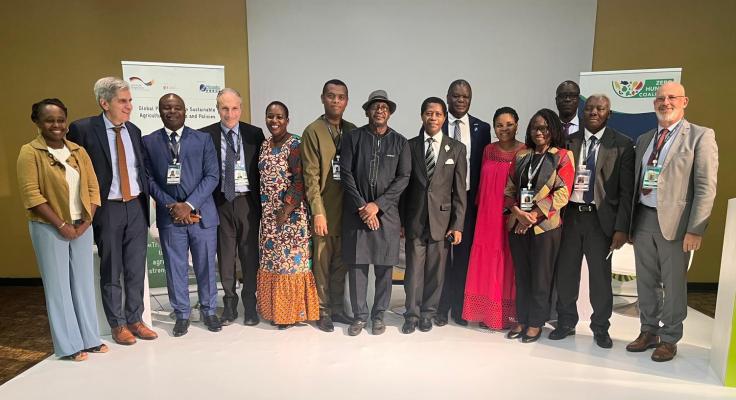
Mission to Madagascar: Days 4 and 5
The Zero Hunger Coalition is currently in Madagascar supporting the finalization of the country's Action Plan for the operationalization of its National Roadmap for Food System Transformation. The ZHC is joined by a delegation from Benin and the Democratic Republic of the Congo as part of the Coalition’s platform promoting South-South dialogues.
Participants in this mission include representatives from the United Nations (FAO, UNICEF, WFP, UN mission in Madagascar, food system transformation taskforce members from Benin, the Democratic Republic of the Congo (DRC) and Madagascar, development agencies (GIZ), NGOs (GAIN and the Shamba Centre for Food & Climate) under the aegis of the Ministry of Agriculture and Livestock and the Zero Hunger Coalition.
DAYS 4/5 - a field visit to farmers and processing factory in Tanjombato
A bus ride took participants to a vegetable processing factory in Tanjaombato. Operated by Lecofruit (Groupe Basan), the factory prepares green beans, artichokes and asparagus produced in the Haut Plateau region of the country for distribution and sale in Europe.
Onsite, participants joined staff to learn about the full production chain of green beans which includes: washing, sorting, blanching, packing, sealing, sterilization, and labeling.


|

|
With its market based in Europe, Lecofruit certifies its products to standards such as IFS Food, BIO UE, and Fair for Life as well as ISO 14001 for environmental management and the Business Social Compliance Initiative (BSCI) for supply chain management.
Lecofruit explained that its primary carbon emissions do not emanate from shipping but rather agriculture, including water management and waste. For this reason, it is transitioning towards solar energy on farms and the use of water storage tanks.
Approximately 15,000 smallholder farmers cultivate vegetables for Lecofruit on a contractual basis. They use exclusively manual techniques with no assistance from agricultural machinery. At the beginning of the planting season, farmers are provided with inputs (seeds and fertilizers) and the price of purchase is agreed. An agricultural technical team is available to help farmers as needed. Within a year, depending on the region and the season, a farmer can fill up to 5 planting contracts per year.

|

|

Participants were impressed by the organization and values underpinning Lecofruit. However, as a company exporting to European markets, its support of the local community is limited to jobs and the economy rather than to nutrition and food security. Pascal Basubi Watanga,from the DRC mentioned a project in his country that distributes seeds to farmers to ensure food security for local communities.
Final thoughts about the mission
Representatives from Benin and the DRC highlighted the many benefits of their participation in the trip to Madagascar to learn about the country’s food system transformation. Discussions between the task forces of these countries will continue using an online platform with regulator meetings to brainstorm different themes. The Zero Hunger Coalition will also moderate a WhatsApp group to easily share information.
For Dominique Dedegbe, “I am impressed by the high standard in Madagascar, the level of engagement by stakeholders and their system of coordination.” His colleague from Benin, Aboua Leonce Dossou (GAIN), agreed and noted the convergence of vision by all stakeholders.
Mr Watanga especially appreciated the day of exchange between the countries (South-South dialogue).“Benin has an interesting organization model and a strong focus on nutrition which is very important. Madagascar has an impressive system for following up on actions and can help us learn about implementation by the government and our partners. It would be great to have their support once they finalize their transformation,” he noted.
Participants also commended Madagascar on the number of women involved in leading and engaging with food systems transformation and aim for similar parity levels in their country.




